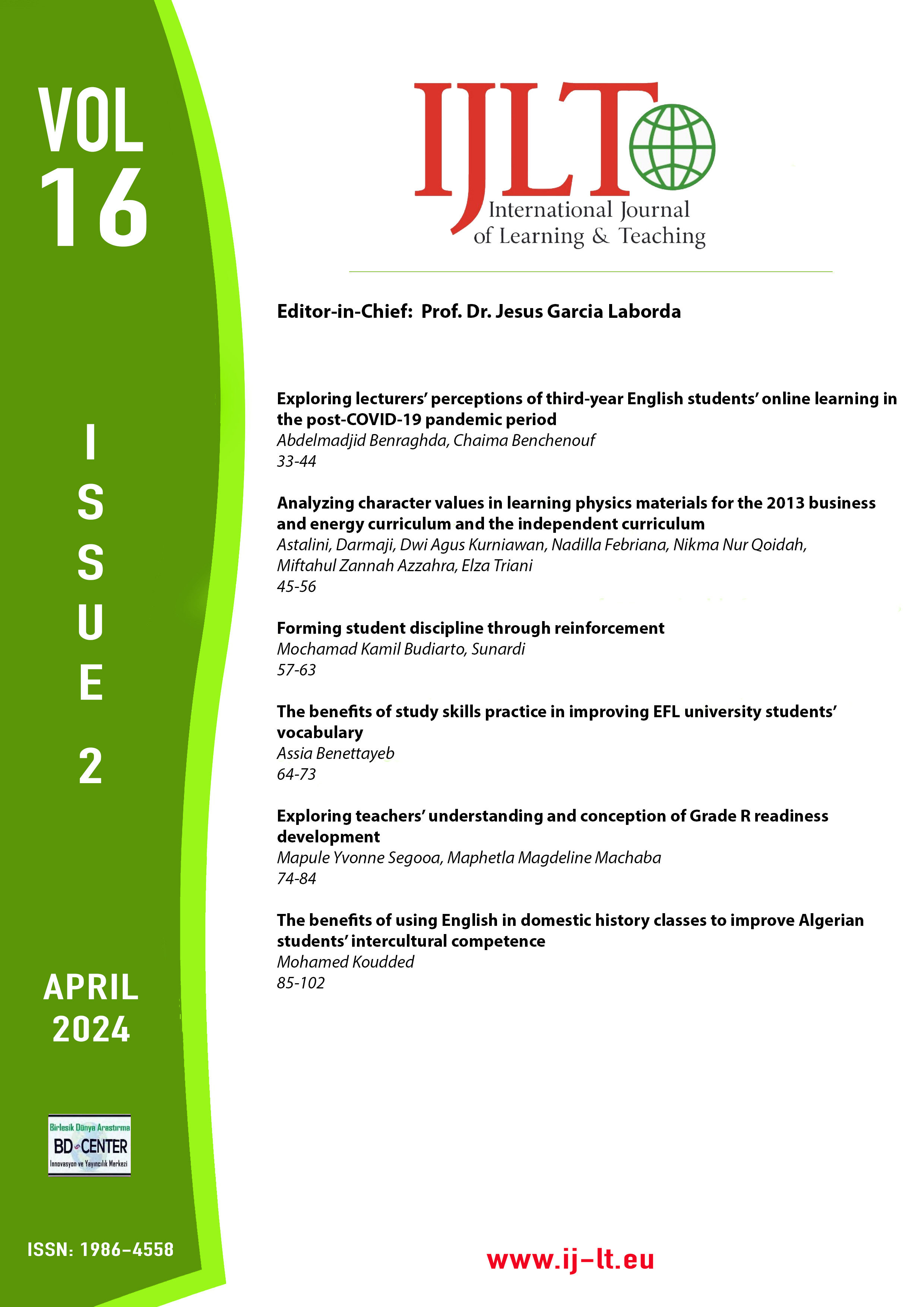Exploring teachers’ understanding and conception of Grade R readiness development
Main Article Content
Abstract
Grade R readiness is a critical component of education that may be a future prerequisite to attain quality learning outcomes in post-Grade R classes. Hence, teachers’ understanding of readiness may hinder or promote the quality of performance in their classrooms. This article was extracted from the study titled, ‘The impact of Grade R readiness on Grade 1 teaching’, which aimed to explore teachers' understanding of the concept of readiness as an instrument for developing learners' abilities in Grade R for Grade 1 preparation. The study was conducted in a natural setting in the Limpopo Province of South Africa by interviewing four Grade R teachers. The study adopted the qualitative interpretivism approach with data being generated through face-to-face semi-structured interviews, document analyses, and observations. Findings revealed that the teachers had different understandings of the concept of readiness which had a negative impact because teachers were unable to display their competencies and understanding of developing readiness within the Foundation Phase environment. This denied them the opportunity to effect the successful implementation of processes that promote readiness. It is recommended that teachers utilize learning planners and resource kits written in Sepedi as their home language.
Keywords: Grade R; grade R readiness; teachers; understanding
Downloads
Article Details

This work is licensed under a Creative Commons Attribution-NonCommercial-NoDerivatives 4.0 International License.
Authors who publish with this journal agree to the following terms:
- Authors retain copyright and grant the journal right of first publication with the work simultaneously licensed under a Creative Commons Attribution License that allows others to share the work with an acknowledgement of the work's authorship and initial publication in this journal.
- Authors are able to enter into separate, additional contractual arrangements for the non-exclusive distribution of the journal's published version of the work (e.g., post it to an institutional repository or publish it in a book), with an acknowledgement of its initial publication in this journal.
- Authors are permitted and encouraged to post their work online (e.g., in institutional repositories or on their website) prior to and during the submission process, as it can lead to productive exchanges, as well as earlier and greater citation of published work (SeeThe Effect of Open Access).
